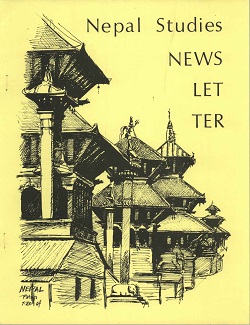Author Biography
Charlotte Thomas (PhD, Master Sciences Po Paris; Master Sciences Po Toulouse) holds degrees in Political Science and Comparative Politics from Sciences Po Paris and Sciences Po Toulouse. She taught at Sciences Po Lille and Paris. Dr. Thomas was Junior Visiting Fellow at the IWM of Vienna and currently is Postdoc Fellow at Ceri Sciences Po. She also coordinates the South Asia Program (SAProg) of Noria, and the Observatory of South Asia. Dr. Thomas works on the political dynamics of the Indian Muslim minority. Her book “Pogroms et violence: les musulmans dans l’Inde contemporaine” was published in September 2018 at Karthala Editions.
Abstract
This contribution aims at assessing to what extent does the fact of living in New Delhi influence the Kashmiri Muslims’ sense of a national belonging to India. Non-belongingness is appraised through the study of Kashmiri Muslims’ emotions and perceptions towards New Delhi, that is to say the territory and the inhabitants of the capital city of India. Living in New Delhi nurtures an othering process between Kashmiri Muslims and the non-Kashmiri Muslim Delhiite society. The contribution analyses this process as a two-way dynamic wherein both the groups are at stake. In the same vein, non-belongingness also appears to be an ambiguous process. But ultimately, the feeling of non-belonging prevails among Kashmiri Muslims. Eventually, Kashmiri Muslims’ feelings towards New Delhi coalesced with their feelings regarding the Indian state. Informed by the socialization to state-led violence that they experienced in Indian-Administrated Kashmir as well as their actual experience of New Delhi, Kashmiri Muslims convert their non-belongingness to the city into a perception of national disaffiliation towards what they name ‘India’. The study is based on fieldwork conducted in September and October 2016 in New Delhi among twenty Kashmiri Muslims who had lived in the capital city of India from six months to ten years prior to the interviews.
Acknowledgements
To begin with, the author would like to convey her immense gratitude to the people she interviewed for this article. Since the time of writing, J&K has entered a new area. Then, the author would like to thank Haley Duschinski and Inshah Malik, the two editors of this special issue, for their stimulating editing work on the first version of this text. The author is also extremely grateful to Dr. Stéphanie Tawa Lama-Rewal for her keen reading and fruitful advises as well as the two anonymous reviewers for their useful comments. For the final reading and corrections, the author deeply thanks Xavier Houdoy. Approximations and mistakes are all the author’s.
Creative Commons License

This work is licensed under a Creative Commons Attribution-Noncommercial-No Derivative Works 4.0 License.
Recommended Citation
Thomas, Charlotte. 2020. Fear and Othering in Delhi: Assessing Non-Belonging of Kashmiri Muslims. HIMALAYA 40(1).
Available at:
https://digitalcommons.macalester.edu/himalaya/vol40/iss1/10


